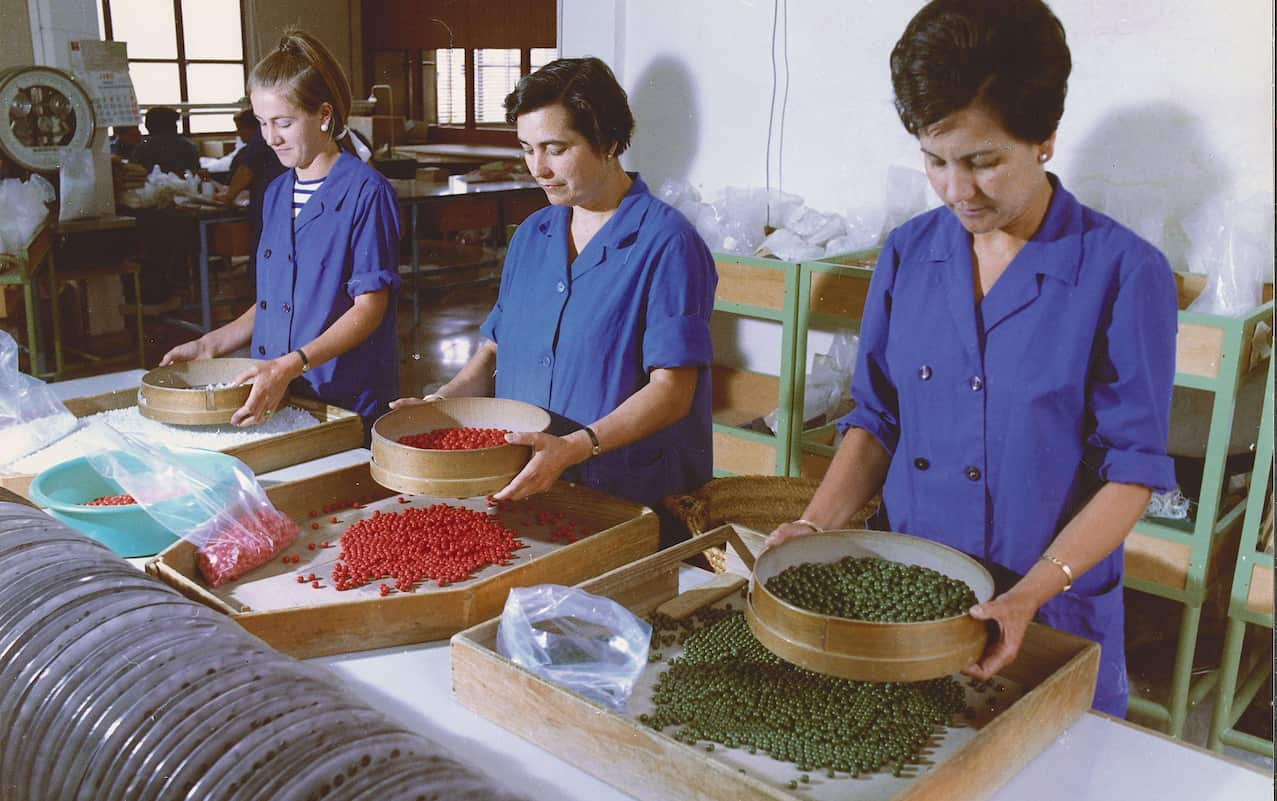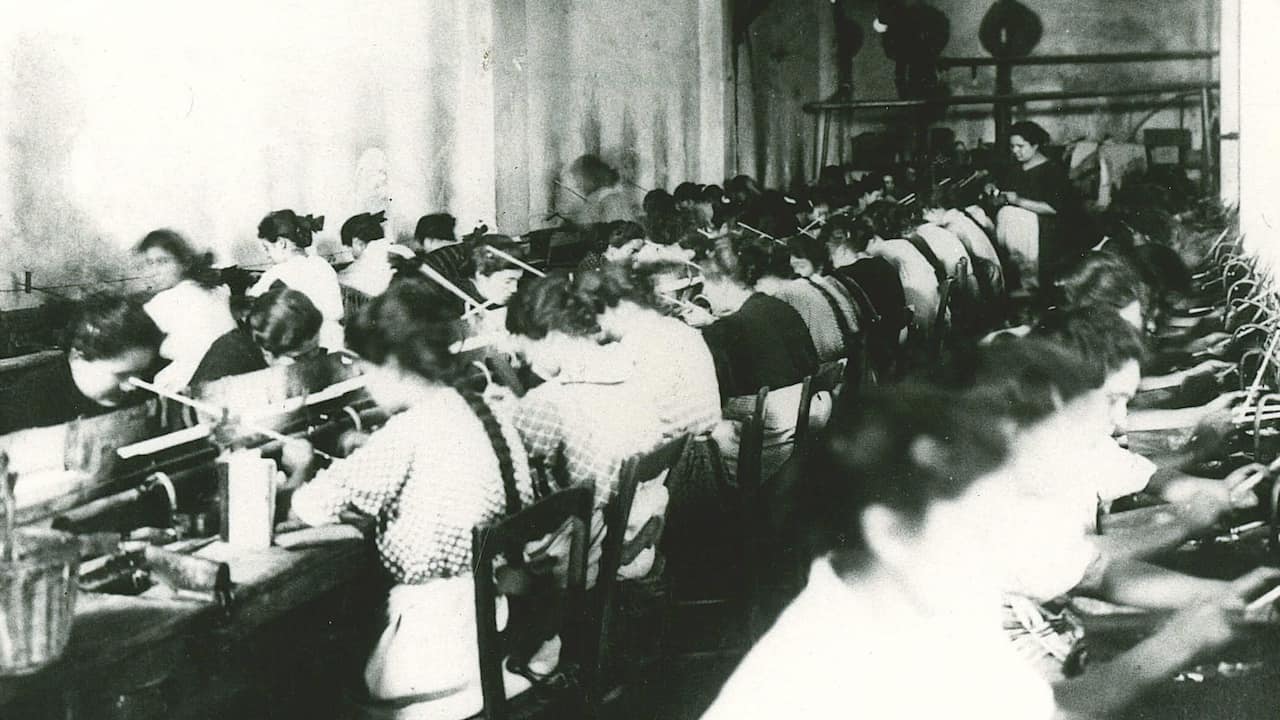
For years, Manacor has been lovingly referred to as the ‘Pearl and Furniture City.’
As you traverse through Manacor, the sound of saws cutting wood from numerous workshops can be heard. However, when it comes to pearls, more careful and silent craftsmanship is needed – one that takes place in privacy by women within their homes.
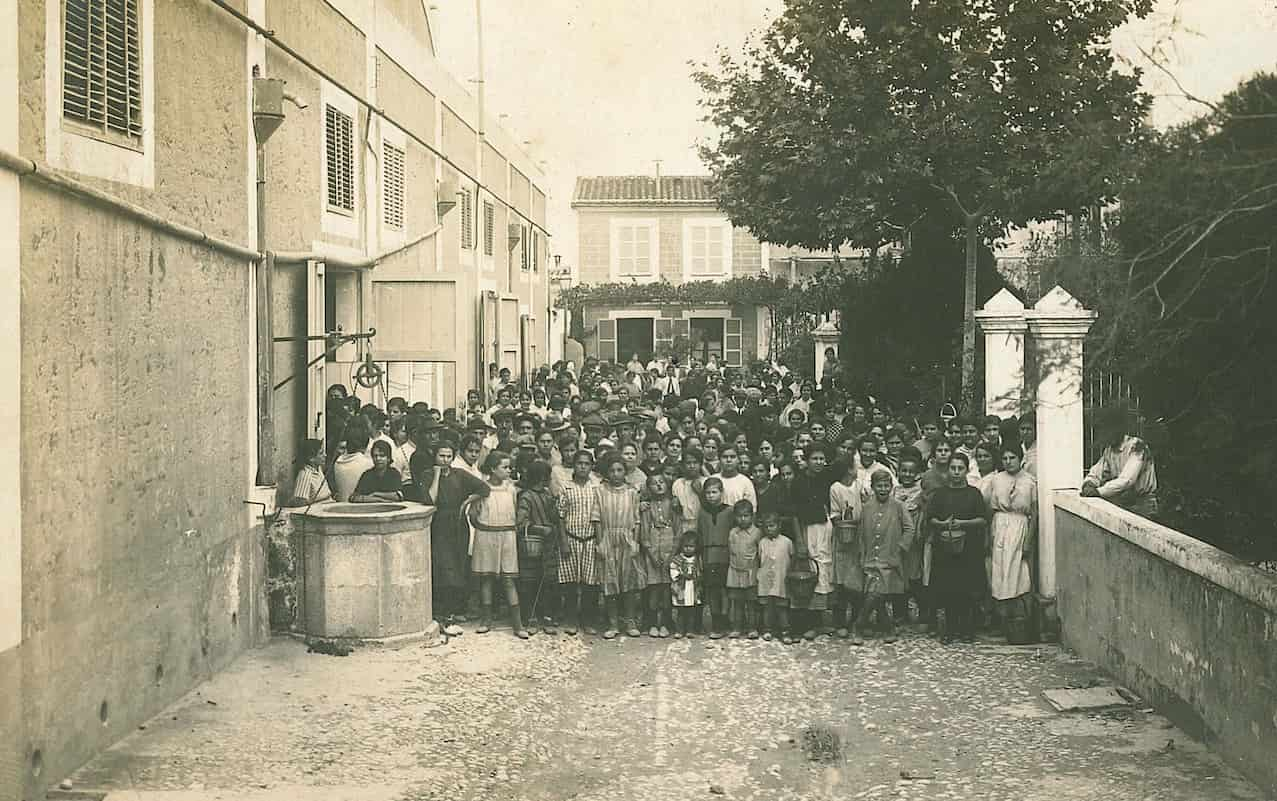
Pearl workers from Manacor, the first women’s strike in Spain
Since its inception in 1890, the making of Majorica pearls has been entrusted to the nimble hands and capable minds of women. In 1902, a factory was founded in Manacor, which employed female artisans both onsite and off. Thus began their glorious journey as custodians of this unique craftsmanship.
Through the hard work of these artisans – including activities such as sorting, threading and knot tying – Majorica pieces were able to be crafted with a high level of precision. It is thanks to their laborious effort that we are still reaping the rewards today.
During Majorica’s formative years, women comprised the majority of its workforce (with the exception of kiln operators, who were male). Consequently, it is accurate to assert that women had a predominant role in sustaining this company.
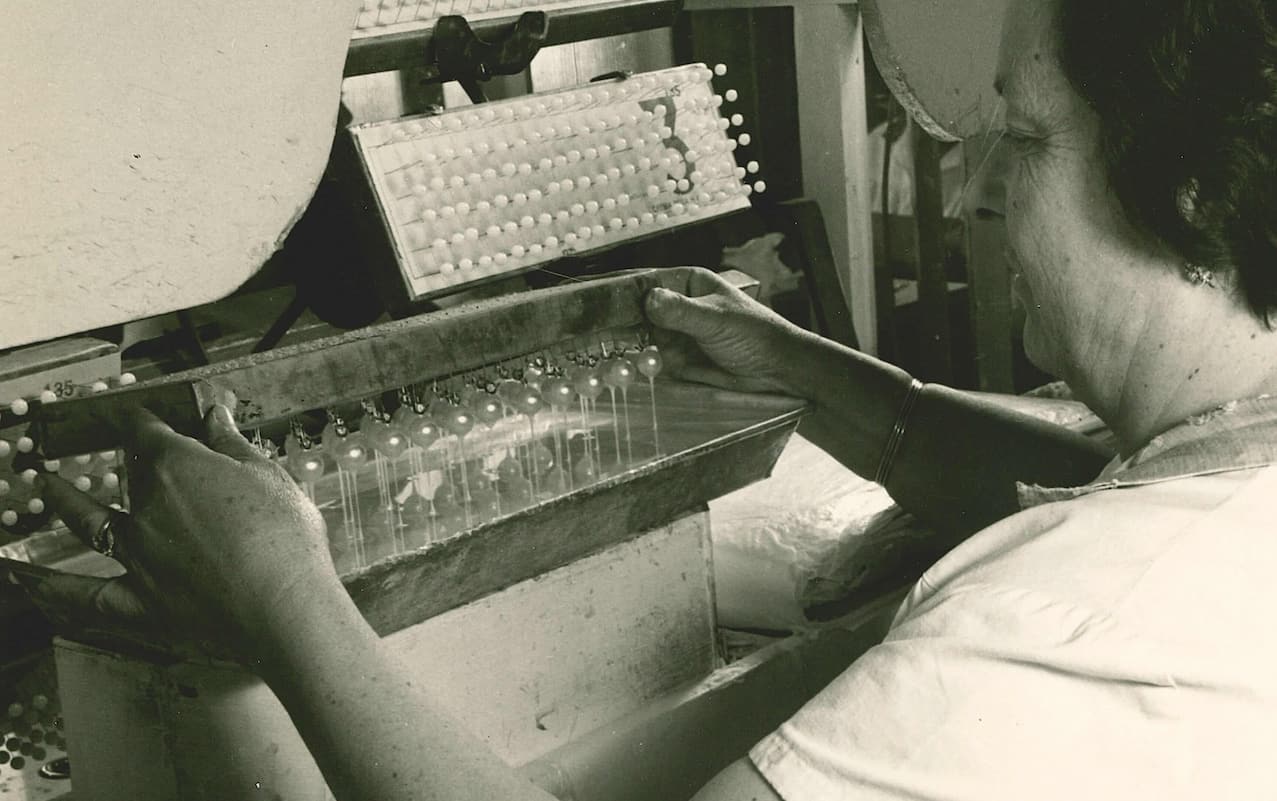
¿Who were the triadores and comptadores (sorters and counters)?
Not long after the factory commenced production, a collection of female laborers halted work in earnest to advocate for improved wages. An astounding 75 out of 100 people on-site joined the strike, which lasted two days, as they called for greater fairness between triadores and comptadores when it came to remuneration.
The triadores and comptadores usually weren’t the youngest employees in the workforce. Compared to their elder counterparts, younger people had to carry out more strenuous and backbreaking tasks.
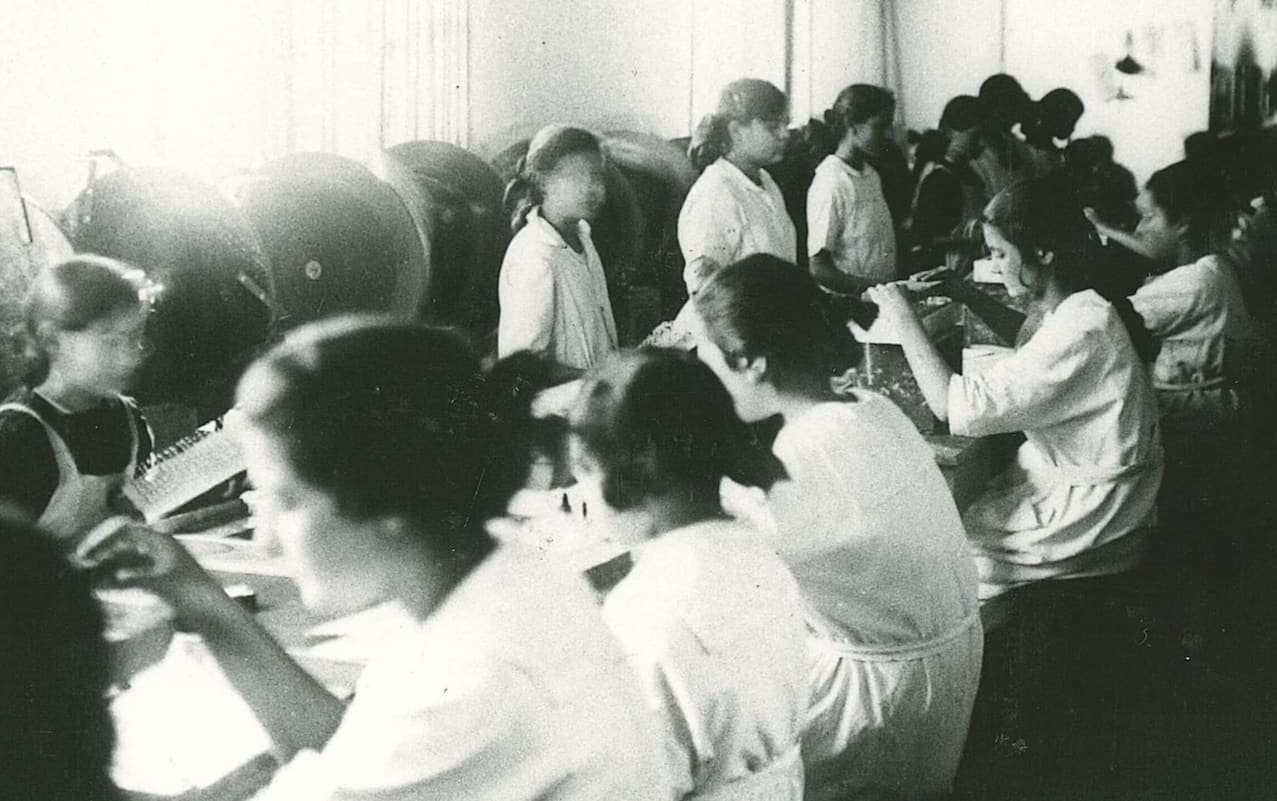
The Perleres (female pearl workers) demonstration resulted in the loss of employment for those who initiated it, making this one of Spain’s first strikes to be planned and executed entirely by women.
Work-life balance
Committed to the well-being of its employees, the company opened a daycare center on-site in the 1960s. The facility was conveniently close enough for mothers who worked at the factory, and over 25 women took advantage of this groundbreaking service. It was one of few companies ahead of its time that had implemented such a valuable amenity.

For over a century, Majorica has been sustained by the dedication and hard work of female generations – grandmothers, mothers, and daughters. This long-standing business is still predominantly owned and operated by women today, with many employees having relatives within the company for multiple generations.
